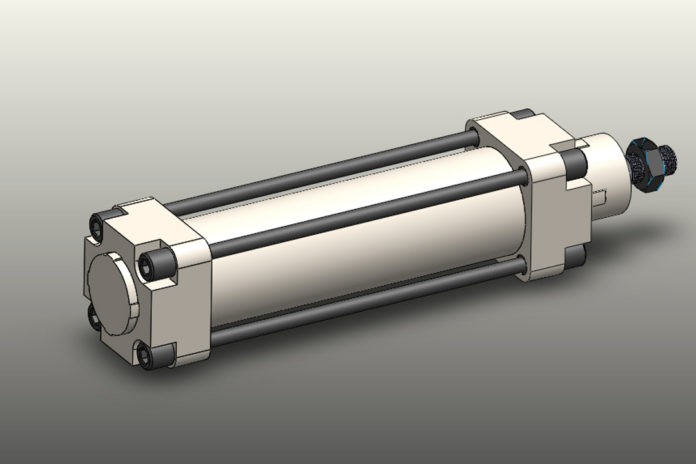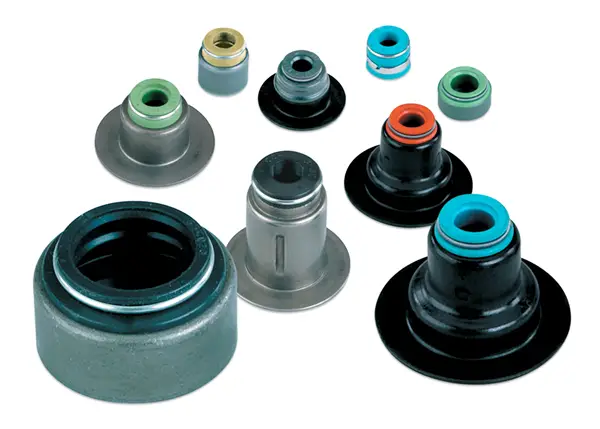Understanding the subtle yet concerning actuator clicking when car is off can often spark worry and confusion among vehicle owners.
This enigmatic noise, originating from the actuator, may raise questions about its causes, potential solutions, and measures to prevent recurrence.
Exploring the mysteries behind this clicking phenomenon is not only a matter of unraveling a common automotive enigma but also a pivotal step in safeguarding your vehicle’s functionality and longevity.
Join us as we delve into the world of car actuators, dissecting the reasons behind their clicks when the car is dormant, and uncovering effective solutions and preventive measures to keep your vehicle running smoothly.
Also Read: Secondary Collision Brake System Malfunction: Safety First!
What exactly is an Actuator?
An actuator is a mechanical or electronic device that translates energy into motion. It’s designed to control or move a system or mechanism by converting various forms of energy into mechanical force. Actuators are found in numerous applications across industries, playing a crucial role in the functionality of devices, machines, and systems.
There are various types of actuators, including electric, hydraulic, pneumatic, and mechanical. Electric actuators use electrical energy to generate motion, often through motors and gears.
Hydraulic actuators harness the power of fluids to create force and motion, while pneumatic actuators use compressed air. Mechanical actuators, on the other hand, function through direct mechanical action without external power sources.
Actuators are fundamental components in robotics, manufacturing, automotive systems, aerospace, and more. They are responsible for precise control and movement in devices such as valves, motors, pumps, and robotics, enabling automation and the dynamic operation of a wide array of machinery and equipment.
Identifying Signs of a Faulty Actuator: How Can I Tell if Mine is Malfunctioning?
Recognizing a faulty actuator involves observing various signs that indicate potential issues with its functionality. Some common indicators of a malfunctioning actuator include:
-
Limited Movement or Stalling
If the actuator fails to move or experiences restricted motion, it might signal a problem. This can manifest as sluggishness, unexpected pauses, or complete immobility.
-
Unusual Noises
Strange sounds during operation, such as grinding, squeaking, or clicking, often suggest internal issues within the actuator. These noises can indicate worn-out components or misalignment.
-
Inconsistent Performance
A malfunctioning actuator might demonstrate inconsistent performance, operating differently from usual or failing to maintain a stable function. This inconsistency could involve irregular speed, unexpected stops, or failure to reach designated positions.
-
Physical Damage or Wear
Visual inspection might reveal physical damage, corrosion, leaks, or excessive wear on the actuator. These visible signs can be an early indication of a problem.
-
Failure to Respond to Controls
If the actuator does not respond to control inputs or commands, it may be a clear sign of a malfunction.
What Causes Actuator Clicking When Car is Off?
The clicking sound originating from an actuator in a car when the vehicle is turned off can stem from a few potential sources, indicating specific issues within the vehicle’s systems:
-
Temperature Changes
Actuators are sensitive to temperature variations. Heat or cold can cause materials within the actuator to expand or contract, leading to minor adjustments that result in clicking sounds when the car is off. This thermal expansion and contraction can create friction among components, generating the clicking noise.
-
Electrical Issues and Weak Battery
A weak or failing battery might not provide sufficient power to all electrical components, including the actuators. Inadequate power can cause the actuator to attempt to engage or disengage intermittently, resulting in clicking sounds even when the vehicle is inactive.
-
Malfunctioning Relay
Relays act as electrical switches that control power distribution to various components, including actuators. If a relay associated with the actuator malfunctions or gets stuck, it can repeatedly attempt to activate the actuator, leading to the audible clicking noise when the car is off.
-
Internal Mechanical Problems
Over time, internal wear, damaged gears, or misaligned components within the actuator can cause irregular movements or attempts to engage even when the vehicle is not in operation. These mechanical issues can result in the actuator producing clicking sounds.
-
Malfunctioning Control Module
The control module manages and regulates the operation of actuators. When this module malfunctions, it can send erratic signals or commands to the actuator, causing it to attempt movement or adjustments, resulting in the clicking noise, even with the car turned off.
-
Sensor Irregularities
Sensors play a vital role in relaying information to the control module about the car’s state. Faulty or malfunctioning sensors may send incorrect signals to the control module, leading to the actuator receiving commands to engage or adjust, resulting in clicking sounds when the vehicle is not in use.
What are the possible solutions for Actuator Clicking When Car is Off?

Addressing actuator clicking when a car is turned off involves identifying the underlying cause and applying specific solutions tailored to the issue. Here are potential solutions for resolving the problem:
-
Temperature-Related Clicking
Solution: As temperature fluctuations cause minor adjustments in the actuator, this clicking is often harmless. No specific remedy is necessary as it is a natural response to temperature changes. However, if it becomes excessive or intolerable, insulating or shielding the actuator may help minimize the noise.
-
Electrical Issues and Weak Battery
Solution: Start by checking the battery’s health and charging system. Replacing or recharging the weak or failing battery might resolve the actuator clicking. Ensure all electrical connections are secure and undamaged. A fully charged and healthy battery should provide sufficient power to prevent erratic actuator behavior.
-
Malfunctioning Relay
Solution: If a faulty relay is the cause, replacing the malfunctioning relay can resolve the clicking issue. An inspection by a mechanic can identify the problematic relay, which, when replaced, should stop the actuator from receiving intermittent and incorrect electrical signals.
-
Internal Mechanical Problems
Solution: Internal mechanical issues within the actuator might require repair or replacement of damaged gears or misaligned components. A professional technician can disassemble the actuator to inspect and repair internal mechanical problems, restoring its smooth operation.
-
Malfunctioning Control Module
Solution: Diagnosing and repairing the control module is crucial. If it’s sending incorrect signals to the actuator, repairing or replacing the control module can rectify the issue. Resetting or reprogramming the module may also be effective in resolving control-related problems.
-
Sensor Irregularities
Solution: Inspect and replace malfunctioning sensors. Calibration or recalibration of sensors and ensuring they provide accurate data to the control module can resolve erratic actuator behavior triggered by sensor irregularities.
What is the price for actuator replacement?
The cost of replacing an actuator can vary significantly based on several factors, including the type of actuator, the specific component being replaced, the car make and model, labor costs, and the location of the repair. On average, the price for replacing an actuator can range anywhere from approximately $150 to $600 or more.
For instance, smaller actuators used in simpler mechanisms might cost less to replace, while larger or more complex actuators, such as those found in advanced automotive systems, could incur higher expenses. Additionally, the cost might differ based on whether it’s a DIY replacement or if you opt for professional services at a dealership or auto repair shop. Labor charges also significantly contribute to the overall cost.
To get a more accurate estimate, it’s advisable to consult a professional mechanic or service center. They can provide a precise quote after inspecting the specific actuator, diagnosing the issue, and factoring in the required parts and labor for the replacement. This helps in obtaining a more detailed and customized cost projection for the actuator replacement.
Important: How to Bypass the Neutral Safety Switch: A Complete Step-By-Step Guide
Is it possible for me to repair a malfunctioning actuator on my own?
Repairing a faulty actuator can be feasible for individuals with mechanical expertise and experience in handling automotive components. However, the ability to fix an actuator independently depends on various factors:
-
Technical Know-How
Repairing an actuator demands a good understanding of the specific mechanism involved, including knowledge of electrical systems, mechanical components, and potential issues that can affect its function.
-
Access to Tools and Resources
Having access to the right tools and resources is crucial for disassembling, diagnosing, and reassembling the actuator. Specialized tools might be required for certain repairs, and having access to technical manuals or online resources can be beneficial.
-
Identification of the Problem
Pinpointing the exact issue causing the actuator malfunction is essential. Sometimes, it might not be apparent and could involve internal electrical or mechanical complications that need a trained eye to diagnose accurately.
-
Risk and Warranty Consideration
Attempting a DIY repair may involve risks, including causing further damage or voiding warranties if not done correctly. Prior to the repair, it’s important to consider whether the actuator is under warranty and if a self-repair could potentially impact this.
-
Complexity of the Actuator
Some actuators are relatively simple to repair, while others can be intricate and demand a higher level of expertise. The complexity and type of actuator influence the feasibility of a DIY repair.
Is it safe to operate my vehicle if the actuator is malfunctioning?
Operating a vehicle with a malfunctioning actuator depends on the specific function affected and the severity of the issue. Here are some factors to consider:
-
Safety Concerns
Driving with a faulty actuator could pose safety risks, especially if the actuator controls critical systems like brakes, steering, or safety features. If these are compromised, it’s unsafe to drive the vehicle.
-
Functionality Impact
If the malfunctioning actuator doesn’t affect crucial systems and the car remains operational, it might be feasible to drive, but it’s crucial to address the issue promptly to prevent potential complications.
-
Driving Comfort
In some cases, a malfunctioning actuator might not impede safety but could affect driving comfort or convenience. For example, if the actuator controls non-essential components like the power windows or seat adjustments, driving may still be possible but with limited convenience.
-
Potential Damage
Continuing to drive with a faulty actuator might worsen the problem or cause damage to other parts of the vehicle. It’s advisable to have the issue inspected and repaired to prevent further complications.
FAQs: Actuator Clicking When Car Is Off
Why is my car making a clicking noise when it’s off?
A car making clicking noises when it’s off can be due to thermal expansion and contraction within various components, causing materials to readjust due to temperature changes. This is a natural response and generally not a cause for concern.
How do I stop my actuator from clicking?
To stop an actuator from clicking, you need to identify the underlying cause. Solutions can vary based on the specific issue, which might involve electrical fixes, replacing damaged parts, or reprogramming the control module.
Why does my car AC make a clicking sound when I turn it off?
Clicking noises from the car’s AC when turned off might stem from thermal adjustments in the HVAC system as it cools down. It could also be due to actuator issues related to temperature changes or internal components.
What causes a blend door actuator to click?
Clicking sounds from the blend door actuator often indicate internal mechanical issues, damaged gears, or misalignment. It might also be caused by malfunctioning electrical components or control module irregularities.
What does it mean when a relay keeps clicking?
A clicking relay generally signifies an electrical issue. Continuous clicking might indicate a malfunctioning relay, causing it to repeatedly attempt to engage or disengage the connected component.
What does it mean when your car just clicks?
If your car only clicks and doesn’t start when you turn the key, it might indicate a weak battery, a faulty starter, or issues with electrical connections. It’s often associated with a starting system problem.
When I press the gas pedal, I hear a clicking noise?
Clicking noises when pressing the gas pedal can be due to various factors, including issues with the CV joints, a damaged axle, or problems with the engine components. It might also indicate issues with the fuel system or exhaust.
Conclusion
The occurrence of the actuator clicking when the car is off can be attributed to various factors such as temperature-induced adjustments, electrical issues, mechanical malfunctions, and control module irregularities. Addressing this clicking noise involves identifying the specific cause.
Whether it’s due to thermal expansion, electrical irregularities, or mechanical problems, seeking professional assistance is advisable. Proper diagnosis by a qualified technician is crucial to pinpoint the issue accurately and apply the necessary repairs or replacements.
Resolving the actuator clicking not only ensures a quieter vehicle but also contributes to maintaining safety and the optimal functionality of the car’s systems. Consulting an expert ensures a smooth and silent operation of the vehicle.




